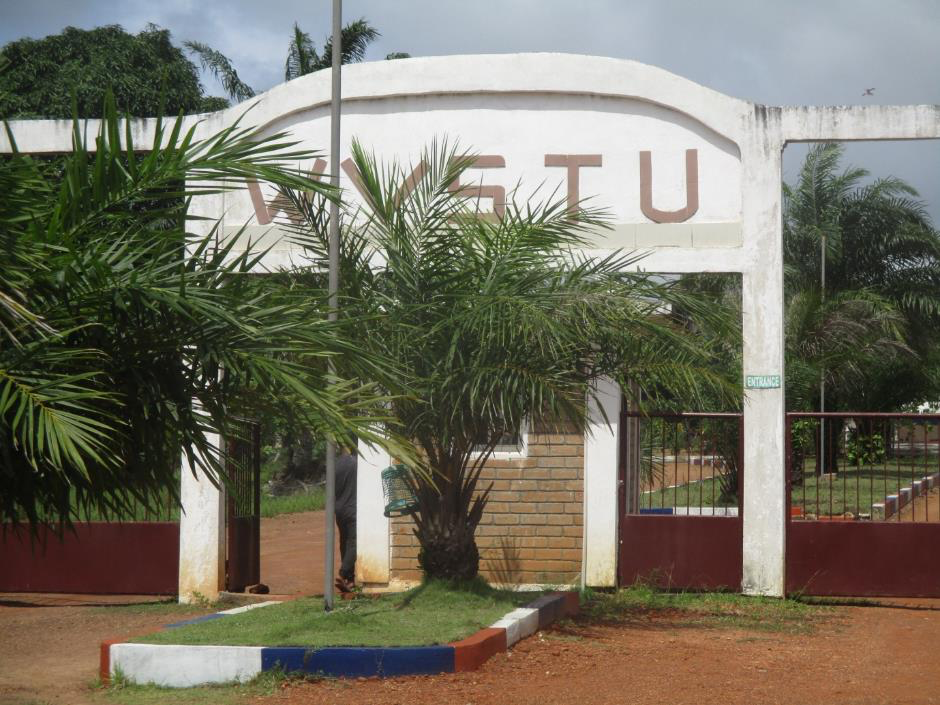HARPER, Maryland – The president of the William V. S. Tubman University, Elliot Wreh-Wilson, has announced that a lack of funds flowing to the university has led to a decrease in professors at the nation’s second-largest public university.
Addressing students on the institution’s main campus, Wreh-Wilson disclosed that since he took over as president of the university, the central government has only made available US$ 5,250 to be used to operate the university.
As a result, he said the university lacks the funds to hire qualified professors to teach at the institution, a situation that was impeding the smooth operations of Tubman University. He said the administration was trying its best to attract qualified professors, but those efforts have not worked.
“The major problem has to do with money which is hampering the smooth operations of the university,†he said.
Wreh-Wilson told students he was concerned about the lack of qualified professors and the impact it was having on students’ ability to learn, even though President George Weah had waived tuition for them.
He suggested that the tuition waiver decree was handicapping the university, as last semester, the university did not collect tuition from students. Moreover, students were refusing to pay the fees that the university is still allowed to collect.
Of the 1,944 students enrolled at the institution this semester, Wreh-Wilson said only 208 students had paid the L$250 (US$1.54) insurance fee charged by the university
The university president said the Ministry of Finance and Development Planning of Liberia had recently promised to provide US$10,000 to the institution after the Student Government Association president, John Tarr, drew attention to the matter. However, that funding has still not arrived.
“Since John Tarr spoke on ELBC Radio in Monrovia, we have gotten zero from the Ministry of Finance and Development Planning,†Wreh-Wilson added.
Since his arrival, Wreh-Wilson said he has submitted the names of 26 professors to be hired within different departments at the university; however, he said the Finance Ministry has not approved any.
“If I was lying, I [would] not say things publicly to put it on the radio,†he noted.
Even if the funds allocated to the university in the national budget were to arrive, Wreh-Wilson said the university might still be cash strapped. He noted that the legislature had reduced the institution’s budget by US$200,000.
He said he would divert the US$133,000 appropriated for goods and services to professors’ salaries because students of the institution have refused to pay required fees.
Meanwhile, Wreh-Wilson has warned students who are not on scholarship or financial aid to pay their activity fees before midterm exams or risk being considered auditors, whose grades will not be recorded by the registrar’s office. He said the vast majority of students had not paid the activity fees this semester.
However, despite the financial constraints, Wreh-Wilson confirmed that the university was able to hire two professors for the Environmental Science Department and the College of Engineering.
He said the institution had generated US$30,000 in scholarship fees paid by the Maryland Oil Palm Production and the Cavalla Rubber Corporation to hire the two professors.
Prior to the hiring, the College of Arts and Sciences had written Wreh-Wilson asking for professors for the Biology and Environment Science Departments. The college noted that two professors – Richard A. Adu and Adebayo Fashina – had abruptly resigned, resulting in students within the college being unable to attend classes.
Several other professors at the university have also been absent from classes this semester.
President Weah’s announcement of a tuition waiver has already been linked to worsening sanitary conditions at the University of Liberia in Monrovia. A lack of water in toilets has led to open defecation at the university’s Capitol Hill campus.
On October 24, 2018, Weah announced that the new policy would immediately take effect at all public tertiary institutions across the country. He said the move was motivated by his discovery that the lack of funds to pay tuition was preventing some students from acquiring education.
However, the president failed to detail the full financial impact of the announcement on the operations of Liberia’s ten public institutions of higher learning, including the University of Liberia and Tubman University.
Additionally, he did not detail precisely where the funds to cover tuition would originate and the 2018/2019 fiscal year budget had already been passed many months before.
Featured photo by Franklin Nehyalor



